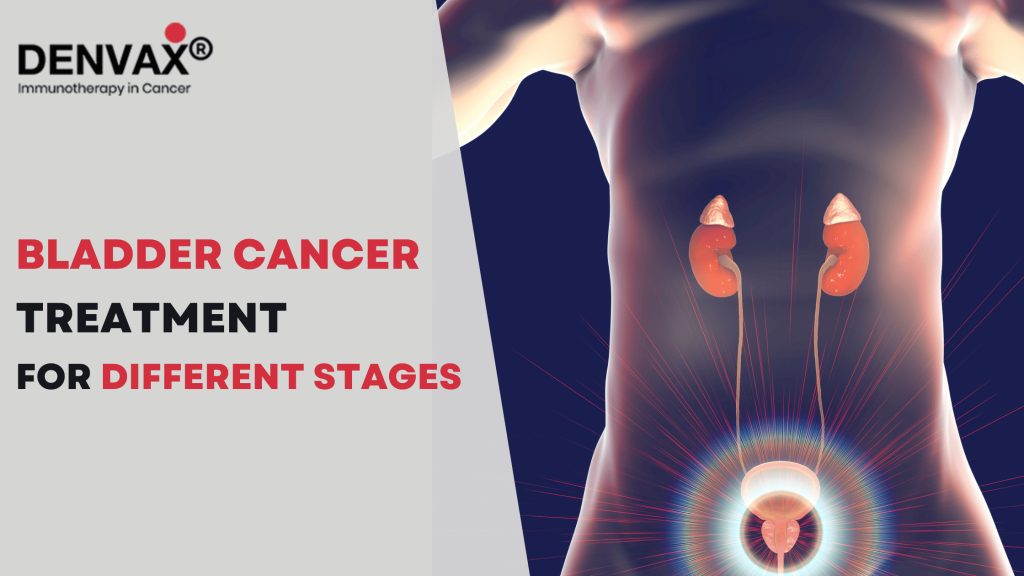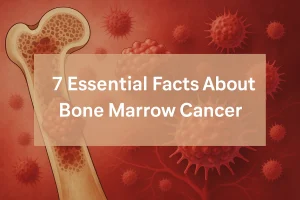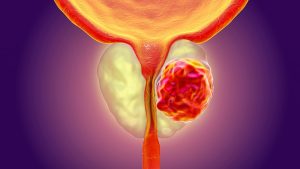
Bladder Cancer Treatment at Different Stages: From Early Detection to Advanced Care
Bladder cancer is one of the most common cancers of the urinary system. It develops when the cells in the urinary bladder begin to grow uncontrollably. Among all bladder cancer types, urothelial carcinoma accounts for nearly 90% of cases.
Bladder cancer is one of the most common cancers of the urinary system. It develops when the cells in the urinary bladder begin to grow uncontrollably. Among all bladder cancer types, urothelial carcinoma accounts for nearly 90% of cases.
According to the World Health Organization (WHO), bladder cancer is the 10th most common cancer globally, with over 600,000 new cases and 200,000 deaths annually. Let’s examine how bladder cancer is treated at various stages—from early, non-invasive tumors to advanced metastatic disease.
How Bladder Cancer Develops
Cancer starts when the DNA in normal bladder cells mutates, disrupting how those cells function and divide. Instead of dying when they should, these cells multiply uncontrollably, forming a tumor. Over time, the tumor may invade deeper bladder layers and spread to nearby organs or distant sites.
Main Treatment Options for Bladder Cancer
The most effective treatment plan depends on the cancer stage, grade, and patient health. Typically, oncologists may recommend a combination of the following:
- Surgery
- Chemotherapy
- Radiation Therapy
- Immunotherapy
- Targeted Therapy
A multidisciplinary team of oncologists, surgeons, and radiation specialists designs a personalized treatment plan for each patient. The first treatment a patient receives is called first-line therapy. If the cancer doesn’t respond well, second-line or third-line therapies may follow.
Patients should always discuss potential benefits, risks, and side effects with their doctors to make informed decisions.
Bladder Cancer Treatment by Stage
Stage 0 (Carcinoma in Situ and Non-Invasive Tumors)
In stage 0a, the cancer remains on the inner bladder lining and hasn’t invaded deeper layers.
Treatment approach:
- Transurethral Resection of Bladder Tumor (TURBT):
This minimally invasive procedure removes the tumor using a resectoscope inserted through the urethra—no incisions required.
- Fulguration:
After TURBT, any remaining abnormal cells are burned off using high-energy current or laser to destroy residual cancer.
For low-grade tumors:
- Intravesical chemotherapy is given a few weeks after surgery to prevent recurrence.
For high-grade tumors:
- Intravesical BCG (Bacillus Calmette-Guérin) therapy is preferred because it stimulates the immune system to attack cancer cells while lowering the risk of recurrence.
- If the cancer persists or returns, another TURBT or even a partial/total cystectomy (bladder removal) may be necessary.
Stage 1 Bladder Cancer
At this stage, the cancer has grown into the connective tissue layer (T1) but not yet into the muscle.
Treatment approach:
- The first step continues to be TURBT with fulguration.
- If the tumor is low-grade, a second TURBT may be performed to ensure complete removal.
- Depending on the results, intravenous BCG or chemotherapy may be recommended.
For high-grade or large tumors, a radical cystectomy (bladder removal) may be indicated. Patients who are unable to undergo surgery may be treated with radiation therapy and chemotherapy.
Stage 2 Bladder Cancer
Here, the tumor has invaded the muscle layer of the bladder wall (T2a or T2b) but hasn’t spread further.
Treatment options include:
- TURBT to confirm staging and extent of the tumor.
- Radical cystectomy is often the main treatment.
- Some patients may undergo partial cystectomy if the tumor is limited to one area.
- Neoadjuvant chemotherapy (chemotherapy before surgery) is commonly used to shrink tumors and improve survival outcomes.
For those unable to undergo surgery, chemoradiation (a combination of radiation and chemo) can be considered. Regular follow-ups and imaging are essential for monitoring progress.
Stage 3 Bladder Cancer
In stage 3, the tumor has extended beyond the bladder to nearby tissues, organs, or lymph nodes but not distant sites.
Standard treatment includes:
- TURBT for staging and assessment. Chemotherapy followed by radical cystectomy remains the gold standard.
- Some cases may receive chemotherapy and radiation before surgery to shrink the tumor.
If cancer cells are discovered in nearby lymph nodes following surgery, further chemotherapy or radiation may be required. Combining TURBT, chemotherapy, and radiation may provide good control in patients with smaller or localized T3 tumors without the need for full bladder removal.
Stage 4 Bladder Cancer
Stage 4 bladder cancer is advanced and has spread to distant lymph nodes (M1a) or other organs (M1b).
These cancers are generally not curable, but treatment focuses on prolonging life and improving quality of life.
Treatment options depend on metastasis extent
If cancer hasn’t spread to distant organs (M0):
- Chemotherapy followed by immunotherapy (e.g., pembrolizumab).
- Chemoradiation to control local tumor growth.
- Depending on the response, cystectomy may be considered later.
If cancer has spread to distant organs (M1):
- Palliative care takes precedence to reduce symptoms, control pain, and improve comfort.
- Low-dose chemotherapy and immunotherapy are commonly used.
The significance of staging in bladder cancer.
Understanding the stage and grade of bladder cancer is critical. It allows oncologists to develop the most effective and personalized treatment plan. Early detection and treatment dramatically increase survival rates and quality of life.
Key Takeaways
- Stages 0–1: minimally invasive TURBT, intravenous BCG, or chemotherapy.
- Stage 2: Muscle-invasive disease frequently necessitates cystectomy with or without chemotherapy.
- Stage 3: Radiation, surgery, and chemotherapy combined.
- Stage 4: Pay attention to palliative care and systemic therapy.







